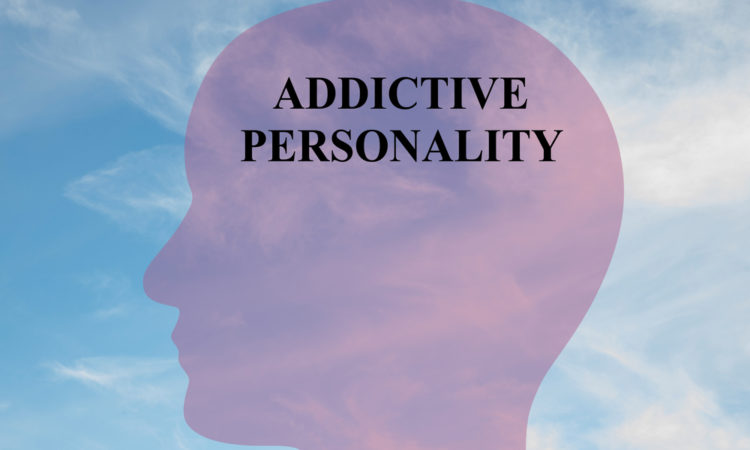
Addictive Personality Disorder: 5 Signs & Helps
Do you enjoy hobbies, activities, people, and places to the point at which you, or others around you, describe you as being obsessed or even an addict?
Maybe you think that possibility they are correct; that down deep inside, you yourself may agree.
Do you wonder if you have an addictive personality?
“Addictive personality is not an actual psychiatric diagnosis,” says Michael Weaver, MD, medical director of the Center for Neurobehavioral Research on Addiction at the University of Texas Health Science Center at Houston. “Personalities are very complex, and while there’s not one specific type that’s more prone to addiction than others, there are several factors that can combine to make you more likely to become addicted.”(WebMD, mental-health/addiction, Do you have addictive personality?)
Exactly what is the difference between habit and addiction?
People who suffer from an addictive personality spend excessive time on a behavior or with an item, not as a hobby but because they feel they have to. (Vaux, Robert. “3 Ways to Spot an Addictive Personality”. Livestrong. Retrieved November 26, 2012.)
Roxanna Jaiden describes Addictive Personality Disorder:
- Inability To Control Impulsive Behavior
Ever feel like you simply can’t resist the appeal of a new hobby or activity? As Dr. Dana Davis of Scitable notes,
“While there’s nothing wrong with enjoying the latest trends or even simply trying new things to spice up your life, a consistent and unrelenting need for the “next great thing” is not a stable approach to daily activities”.
If you’re suffering from this aspect of addictive personality disorder, slowing things down when that rush of excitement hits you is the key to overcoming these urges. Spending a few seconds looking at the situation from a rational perspective puts the fervor and excitement of the moment on the back burner, helping to keep you calm and overcome powerful impulses.
- Weak Commitment To Personal Goals & Values
Those of you who identity with impulsive behavior probably know that the logical follow up to that trait is a weak overall commitment to personal goals and values. As each impulse strikes, it’s only natural to leave your former passion and desire out in the cold as you chase a new concept or activity.
In a New York Times article, Bryce Nelson explains,” This sensation-seeking predisposition can make others view your personality or commitment to events and ideals as flippant or superficial”.
Overcoming this trait of addictive personality is a little tricky. After all, people change, so it’s unfair to assume that you’ll remain a static character forever. The best way to combat this problem is by enacting an honest evaluation of your current goals when a new interest enters your life.
Instead of just jumping ship, try to take a long-term approach and see if shifting your perspective or allegiance to a certain cause or activity is really worth the cost of moving away from where you currently stand.
- Constant Stress & Anxiety
Nelson goes on to point out that dealing with an addictive personality comes with quite a bit of stress and anxiety. Whether it’s personal regret for impulsive actions, substance abuse or disappointment leveled against you by others, the burden of battling addictive traits can weigh you down with anxiety and stress.
Thankfully, admitting you have a problem with this type of behavior and seeking help is the best way to lift these negative feelings. No one is perfect so this isn’t a quick and easy fix, but you’ll soon rest easier knowing that you’re doing everything in your power to break the habit.
- Recurring Themes Of Social Alienation
Another major sign that you’re fighting an addictive personality comes in the form of social alienation and loneliness.
By flitting from one social group to another, or constantly jumping between hobbies, it’s no surprise you’ve probably replaced deep, lasting bonds with transient and short-lived connections. Obviously, other factors play an important role when determining how your social life unfolds, but adhering to a slower, more reasoned approach to impulses and commitments is the best way to shed this persona and let your true personality shine through the shadows of addictive personality disorder.
- Mood Swings & Negative Self Worth
The final and most telling sign you’re suffering from addictive personality disorder is a negative self-image and a penchant for mood swings.
While the thrill of a new addiction or impulse provides a high of its own, the truth is that when these feelings of happiness ebb, all you’re left with are the ramifications of this destructive behavior, especially if things like drugs, alcohol and gambling are involved.
Again, the best way to fight back against this issue is admitting you have a problem. From here, you can reestablish a more appropriate and positive self-image. Once you have the true value of yourself back in place, you can begin the healing process with the help of others and overcome addictive personality once and for all.
(Roxanna Jaiden, 5-signs-you-have-an-addictive-personality, mindbodygreen. Oct. 24, 2014 6:17 AM,)
Using therapy such as CBT (Cognitive Behavioral Therapy) it is possible to give addicts healthier coping skills and to help alter negative thought patterns. Other forms of therapy can address underlying issues and memories in more detail. Meanwhile medication can be used both to suppress the initial addiction and also to treat the anxiety and increased dopamine levels that may lie at the heart of the addiction.
(Stanley C. Loewen, Addictive-Personality-Disorder, in healthguidance)
This is where Counseling on Demand comes in. Our counselors and therapists are well versed in CBT and addiction. We can help identify whether you actually have a disorder and what to do about it.
We are online at CounselingonDemand.com where you can connect from your own private place and in strict confidence.
We are only a click away.